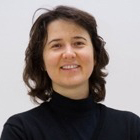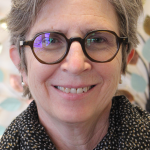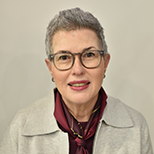Scientific Committee
Governance
The Scientific Committee (SC) is the governing body of the World Data System. It is made up of leading scientists and experts who are actively involved with data. The Committee includes directors of WDS member organizations and covers a broad range of disciplines and geographical areas.
Chair – David Castle
David Castle is a Professor in the School of Public Administration and the Gustavson School of Business at the University of Victoria.
Dr. Castle is a Researcher in Residence at the Office of the Chief Science Advisor to the Prime Minister of Canada, contributing expertise in science, technology and innovation policy.
Dr. Castle is the Chair of the Science Advisory Committee of the Council of Canadian Academies. He is a Director for Canada’s national research and education network provider, Canarie, and a member of the Public Health Agency of Canada’s Expert Advisory Group for a pan-Canadian Health Data Strategy.
Since 2019 he has been a member of the Scientific Committee of the ISC’s World Data System (WDS) and has recently joined the Canadian National Committee for the Committee on Data (CODATA) of the International Science Council (ISC). As a member of the OECD Global Science Forum Expert Group he contributed to the 2020 report, Building Digital Workforce Capacity and Skills for Data Intensive Science.
Vice Chair – Claudia Medeiros
Claudia Maria Bauzer Medeiros is professor of Computer Science at the Institute of Computing, University of Campinas (Unicamp), Brazil. She has received Brazilian and international awards for excellence in research, in teaching, and work in fostering the participation of women in computing. She is a member of the Brazilian Academy of Sciences.
Claudia is a Commander of the Brazilian Order of Scientific Merit, and a fellow of the Brazilian Academy of Sciences and of TWAS. She is a Doctor Honoris Causa from Universidad Antenor Orrego, Peru (2007), and from Universite Paris-Dauphine, France (2015). Her research is centered on the management and analysis of scientific data, to face the challenges posed by large, real world applications. This involves handling distributed and very heterogeneous data sources, at varying scales in space and time, ranging from satellite data to earthbound sensor networks. For the past 25 years, she has coordinated large multi-institutional projects in biodiversity, health sciences, and in agricultural and environmental planning, involving universities in Brazil, Germany, and France. In 1994, she created the Laboratory of Information Systems at Unicamp, one of the first research laboratories in Brazil dedicated to solving multidisciplinary problems involving scientific data in interdisciplinary research. Since 2014, she has been part of the coordination of the eScience and Data Science program at FAPESP (the Sao Paulo Research Foundation, Brazil). She is presently a member of the RDA Council. For her work in fostering involvement of women in computing, she received, among others, the Anita Borg Agent of Change Award (2009), and the CLEI Latin-American Women in Computing – LAWCC – award (2018).
Vice Chair – Hugh Shanahan
Hugh Shanahan is a professor of Open Science and Computer Science at the Royal Holloway, University of London. He has a background in Computational Biology, focusing on transcriptomics and metagenomics combined with a deep background in Computational and Theoretical Physics. He completed his PhD in 1994 in Lattice QCD and completed postdocs in Glasgow, Cambridge, and Tsukuba before moving into Bioinformatics in 1999. In 2005, he joined the department of Computer Science at Royal Holloway, University of London where he is now Professor.
Since 2015, he has been a co-chair of the CODATA-RDA schools in Research Data Science that has delivered training in Data Science methods for researchers to students from approximately 40 countries. He was a member of the Fairs FAIR consortium which was focused on the development of an overall knowledge infrastructure on academic quality data management, procedures, standards, metrics, and related matters, based on the FAIR principles.
Christine Choirat is the Chief Innovation Officer of the Swiss Data Science Center and a Lecturer on Biostatistics at the Harvard T.H. Chan School of Public Health and the Harvard Extension School.
Dr. Choirat received her PhD in 2003 from Paris Dauphine University. Her research interests include data science, high-performance computing, reproducible research, and environmental policy and health policy. She has published works in the New England Journal of Medicine, the BMJ, the Journal of the American Medical Association, and the Annals of Applied Statistics.

Mamoru Ishii is the Director General of Radio Propagation Research Center, National Institute of Information and Communications Technology and director of the World Data Center for Ionosphere and Space Weather. He has been leading Japanese operational space weather forecast as a member of International Space Environment Service (ISES). He is working as the Deputy Director of ISES since 2019. He managed research projects with South-Asian countries for measuring equatorial ionospheric phenomena for more than ten years, and acts as a secretary of Asia Oceania Space Weather Alliance (AOSWA) since 2012.
Mamoru Ishii obtained the Doctor of Science, Geophysical Institute, Kyoto University, Kyoto, Japan in 1993, and worked as a visiting scientist in Max-Planck Institute of Aeronomie, Katlenburg-Lindau, Germany in 1993-1994. He joined Communications Research Laboratory (now NICT) in 1994.
Since 2012, he worked as the Director of Space Environment Laboratory, NICT, and since 2021, moved to the present position.
Johnathan Kool is based in Australia, Dr. Johnathan Kool graduated with a Bachelor of Science in Wildlife Biology from McGill University; was awarded a Master of Environmental Management (MEM) in Coastal Environmental Management from Duke University; and completed his Ph.D. in Marine Biology and Fisheries from the University of Miami. Dr. Kool is currently the Director of the Australian Antarctic Data Centre. He has also been employed by Geoscience Australia; jointly by James Cook University and the Australian Institute of Marine Science; the World Resources Institute (as their GIS Lab manager), and the Appalachian Mountain Club.
Dr. Kool has a keen interest in complexity and complex systems, and how data and information systems can be used in making decisions and finding solutions. Over the course of his career, he has found interesting parallels between genetics, diseases, languages, intra-organizational communications, and cat memes. He has had a lifelong interest in international travel and engagement, and he values how it forces him to break preconceived notions and think in broader terms.
Margaret Levenstein is Director of ICPSR, the Inter-university Consortium for Political and Social Research. Founded in 1962, ICPSR is the largest curated social science data archive in the world and a recipient of a 2019 National Medal for Museum and Library Service. Levenstein is Professor in the School of Information, Research Professor in the Institute for Social Research and Adjunct Professor in the Stephen M. Ross School of Business, all at the University of Michigan. She is Co-Director of the Michigan Federal Statistical Research Data Center, co-chair of the FSRDC Executive Committee, and Associate Chair for Survey of the American Economic Association’s Committee on the Status of Women in the Economics Profession. She serves on the boards of the Social Science Research Council, Computational Antitrust, OpenDP, Coordinated Access for Data, Researchers and Environments (CADRE), the Data Documentation Initiative (DDI), the Network on Life Course Health Dynamics and Disparities in 21st Century America, Databrary, and the Qualitative Data Repository. She received her PhD in economics from Yale University and BA in economics from Barnard College, Columbia University. She is the author of Accounting for Growth: Information Systems and the Creation of the Large Corporation. Formerly President of the Business History Conference, she is the author of numerous historical and contemporary studies of competition and of innovation. Her research examines the production, dissemination, and confidentiality protection of novel, non-designed data for social and economic measurement.
Libby Liggins is an Associate Professor at Massey University and a Research Associate of the Auckland Museum Tāmaki Paenga Hira in Aotearoa New Zealand.
Libby’s research is interested in characterising the generation and erosion of biodiversity and she participates in several initiatives interested in the ethical stewardship and aggregation of required data. Libby is on the Steering Committee for: the Genomic Observatories Metadatabase (GEOME) and the Group on Earth Observations Biodiversity Observation Network (GEOBON) Genetic Composition Working Group. Since 2012, she has been a core member of the Diversity of the Indo-Pacific Network (DIPnet) that seeks to advance genomic biodiversity research in the region. In Aotearoa, Libby leads the Ira Moana – Genes of the Sea – Project that has consolidated genomic data and related metadata of marine biodiversity for uptake in national monitoring and for synthetic research, and she is contributing to the design of the Aotearoa Genomic Data Repository, for which access to the genomic data is controlled by Indigenous Māori communities. She collaborates with Local Contexts to support the Traditional Knowledge and Biocultural Labelling Initiative that offers a practical mechanism to signal Indigenous rights relevant to the responsible and equitable future use of data, and to communicate their Indigenous provenance.
Libby was awarded the 2019 WDS Data Stewardship Award for her contribution to initiatives supporting the retention of contextual metadata alongside genomic data, enabling re-use toward biodiversity and conservation objectives, and maintaining the Indigenous provenance of these data to support Indigenous Data Sovereignty.
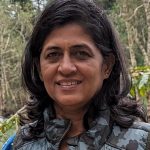
Devika Madalli is the Director of the Information and Library Network (INFLIBNET), UGC-Inter University Centre in Gandhinagar, India. Prior to joining INFLIBNET, Dr. Madalli served as a Professor of the Documentation Research and Training Centre, Indian Statistical Institute, for 27 years and as an adjunct faculty at the Department of Information Engineering and Computer Science (DISI), University of Trento, Italy. An advocate of Open Science practices, Dr. Madalli has extensive experience in teaching, research, and capacity building. Her interest lies in Data and Knowledge Management, Knowledge Organization and Semantics, and Open Data Repositories.
Dr. Madalli has served as a member of the Technical Advisory Board of the Research Data Alliance (RDA). She also serves as co-chair for RDA interest groups on Research Evaluation, Global Research Commons (until April 2024), and Sustainable Development Goals (SDC). Additionally, she is a member of the governance board of DRYAD and has served as an expert/consultant to UNESCO, UNFAO, OECD, Commonwealth of Learning, and the European Commission. She is a recipient of Fulbright and Erasmus Mundus fellowships.
Dr. Madalli is on the advisory board of Universal Decimal Classification. She serves as the chair of OpenAccessIndia Working Group. She served on the advisory panel and scientific committees of several international conferences such as SWIB, ICADL, MTSR, SciDataCon, LODLAM, and ICSD. She has been a member of editorial panels of prestigious journals such as Knowledge Organization (ISKO), Data Science Journal, Library Hi-Tech among several others and has published widely.
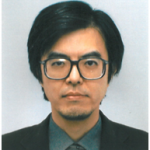
Yasuhiro Murayama is Research Executive Director at NICT Knowledge Hub of NICT (National Institute of Information and Communications Technology, Japan), and a Member of Science Council of Japan, serving as a co-chair of G7 Open Science Working Group (WG established by G7 Science Ministers’ Meeting May 2016), Antarctic Observation Deliberation Committee at National Institute of Polar Research, and Board member of Japan Geoscience Union. Dr. Murayama served as a Visiting Professor at Research Institute of Sustainable Humanosphere of Kyoto University in 2013-2014, member of Expert Panel of Open Science Promotion at Cabinet Office of Japan 2014-present, OECD/GSF-WDS Working Group of International Coordination of Data Infrastructures for Open Science (2016-2017), and High-Level Expert Group of European Open Science Cloud of European Commission (2015-2017). He was awarded by Japan’s Minister of Education, Culture, Sports, Science and Technology in 2007. He received his Ph.D. from Kyoto University in 1993.
Dale Peters is an independent research infrastructure consultant with extensive experience in data-intensive science, open science, and digital libraries.
Dale has a PhD in Social Science (Information Studies) from the University of KwaZulu Natal and has held various positions at academic institutions in South Africa and Germany. She has also served as a specialist consultant to the World Intellectual Property Organization (WIPO), International Federation of Library Associations and Institutions (IFLA), Organization for Economic Co-operation and Development (OECD), and the Department of Science and Innovation of South Africa. She has contributed to several reports on e-infrastructures, data management, and open science.
Juanle Wang received a PhD degree in 2005 from University of Chinese Academy of Sciences and a B.S and a master’s degree from China University of Mining and Technology. He is currently a professor and deputy director of the department of Geodata Science and Sharing at the Institute of Geographic Sciences and Natural Resources Research, Chinese Academy of Sciences; director of the World Data Center for Renewable Resources and Environment, a WDS Regular Member; executive director of the Knowledge Service for Disaster Risk Reduction in the International Knowledge Centre for Engineering Sciences and Technology of UNESCO; a member of the national expert group of “Man and the Biosphere” in China; and is on the editorial boards of the Geoscience Data Journal, Data Science Journal, Data and other academic or data journals in China. His current main research interests concern data sharing of resource and environment science, spatial information system of One Belt One Road, and disaster risk reduction knowledge service. He has published more than 100 papers, four monographs, and two atlases in the past five years. He was awarded second prize of the National Science and Technology Progress Award of China in 2014, and third prize of the Outstanding Map Award of China in 2018.




